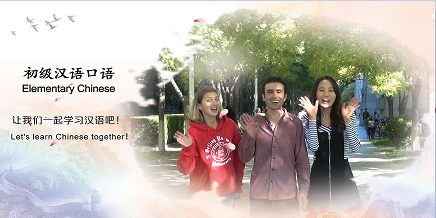
当前课程知识点:New Media and Cultural Studies > Final Exam > Final Exam > Discussion Questions of Lesson 3
返回《New Media and Cultural Studies》慕课在线视频课程列表
( Choose One to Answer)
1. From the perspective of semiotic criticism, please talk about your view on “mobile phones control us” based on sources and real life.
Since the advent of smart phones, the world has changed completely. The world of signs created by social media on mobile terminals has completely wrapped around us. Today, it’s like a “disinfect” ritual as we use phones to take photos of the meal before eating. When we arrive at tourist destinations, we are busy with take photos during the tour and post them on Microblog. In order to take a good photo of the food, we turn to value the formality of the food more than the taste of food itself. However, during the tour, we don’t care about how much we actually savor local culture and landscape. Once we realize this, we may need to think: Is mobile phones’ control over us a good thing or a bad thing? Please analyze it from the perspective of semiotic criticism.

Take photos before eating

Take photos along tours
2. Please analyze the signs commonly seen in daily life based on knowledge about semiotic criticism.
Below are the signs for ladies’ and gentlemen’s room, which embody icon, index, conventional features of signs. Please elaborate how they manifest these features.

3. Please analyze the power operation mechanism of “entry lux brand” based on knowledge about semiotic criticism.
Luxury goods are generally more expensive than what ordinary people can afford. However, “entry lux brand” is lower in price, and pursues refinement in branding, style and design. Therefore, it meets some people’s needs for their identity and taste. Based on relevant semiotic theories, please discuss: (1) Why is “entry lux brand” created? (2) What is its power and its operation mechanism?


返回《New Media and Cultural Studies》慕课在线视频列表
-1.1 Culturalism
--1.1
-1.2 Marxist Theory
--1.2
-1.3 Structuralism and Post-structuralism
--1.3
-1.4 Gender and Sexuality
--1.4
-Unit Test 1
-Discussion Questions of Lesson 1
-2.1 Aristotle’s Classical Rhetoric
--2.1
-2.2 Kenneth Burke’s New Rhetoric
--2.2
-2.3 Frame and Metaphor: Two Weapons in the Fight for Discourse
--2.3
-2.4 The Concepts of Our Time and the Secret to their Creation
--2.4
-Unit Test 2
-Discussion Questions of Lesson 2
-3.1 Understanding Signs: From Saussure to Pierce
--3.1
-3.2 The Power Relationship Behind Signs
--3.2
-3.3 The Landscape of Signs in the Cyber World
--3.3
-3.4 A Model of Communication Semiotic Criticism
--3.4
-Unit Test 3
-Discussion Questions of Lesson 3
-4.1 Feminist Stance in Romance Web Fiction
--4.1
-4.2 Paradox of Body Consumption
--4.2
-4.3 Women’s Empowerment in New Media
--4.3
-Unit Test 4
-Discussion Questions of Lesson 4
-5.1 Optimistic Theories of Cultural Consumption
--5.1
-5.2 Pessimistic Theories of Cultural Consumption
--5.2
-5.3 Fan Culture and Convergence Culture
--5.3
-Unit Test 5
-Discussion Questions of Lesson 5
-6.1 Understanding Rituals
--6.1
-6.2 Media Events and Media Rituals
--6.2
-6.3 Interaction Ritual Chains
--6.3
-6.4 New Media Ritual Criticism
--6.4
-Unit Test 6
-Discussion Questions of Lesson 6
-7.1 Overview of Subcultural Studies
--7.1
-7.2 Birmingham School’s Subcultural Studies
--7.2
-7.3 The Incorporation of Subcultures
--7.3
-7.4 Case Studies of Subcultures
--7.4
-Unit Test 7
-Discussion Questions of Lesson 7
-8.1 Space and Spatial Epistemology
--8.1
-8.2 Spatial Practice and Power Production
--8.2
-8.3 Lefebvre’s Theory of the Production of Space
--8.3
-8.4 Foucault’s Theory of Space Discipline
--8.4
-8.5 Cultural Consequences of the Production of Space
--8.5
-Unit Test 8
-Discussion Questions of Lesson 8
-9.1 Telegraph: Technology and Cultural Changes
--9.1
-9.2 Virtual Reality: Technology and Space-Time Restructuring
--9.2
-9.3 Mobile Phone: Technology and Subjectivity Alienation
--9.3
-9.4 WeChat: Technology Reshapes Social Relationships
--9.4
-Unit Test 9
-Discussion Questions of Lesson 9
-10.1 Five Shapes of Body
--10.1
-10.2 Philosophical “Adventure” of Body
--10.2
-10.3 The Code of Power Behind Body
--10.3
-10.4 Body Politics in the Era of New Media
--10.4
-Unit Test 10
-Discussion Questions of Lesson 10
-11.1 Internet Freedom: Media Imperialism in the Global Village
--11.1
-11.2 Cyber Diplomacy: The New Blue Ocean of Global Political Communication
--11.2
-11.3 Cyber Terrorism: The Challenge of New Media Decentralization
--11.3
-Unit Test 11
-Discussion Questions of Lesson 11
-12.1 Overview of Research Methods
--12.1
-12.2 Ethnography
--12.2
-12.3 Focus Group
--12.3
-12.4 Interactive Narrative
--12.4
-Unit Test 12
-Discussion Questions of Lesson 12
-Final Exam


